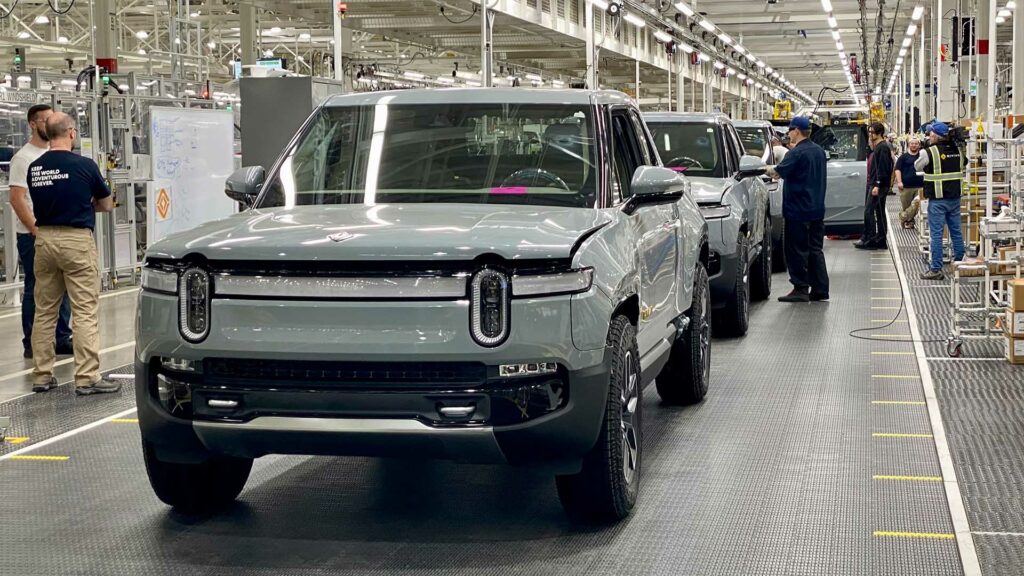
Newsletter Subscribe
Enter your email address below and subscribe to our newsletter

Enter your email address below and subscribe to our newsletter

Shares in Rivian and Tesla soar as both companies exceed expectations with impressive volume data, showcasing the growing demand for electric vehicles.
| Getting your Trinity Audio player ready... |
The electric vehicle (EV) industry continues to make headlines as US start-up Rivian Automotive reveals impressive production numbers, surpassing Wall Street expectations.
This news comes on the heels of robust delivery reports from industry giants Tesla and BYD, further fueling optimism in the EV sector. With increased demand and growing competition, the market is witnessing exciting developments and key challenges that require attention.
Rivian, based in California, announced that it produced 13,992 trucks and vans in the second quarter at its factory in Normal, Illinois. This figure significantly exceeded analysts’ projections of around 11,000 vehicles, demonstrating Rivian’s strong manufacturing capabilities.
Moreover, the company reiterated its guidance of manufacturing 50,000 vehicles by the end of this year. Rivian’s outstanding performance has elicited positive responses from industry experts and investors alike, contributing to a surge in the company’s stock prices.

Tesla, the leading EV manufacturer in the US, reported a record-breaking delivery of 466,000 cars in the second quarter, representing an impressive 83.5% year-on-year increase.
The surge in sales can be attributed to price reductions implemented earlier this year, driving demand and solidifying Tesla’s dominant market position. Not to be outdone, Chinese rival BYD also experienced substantial sales growth, with volumes nearly doubling in the first half of 2023, totaling 1.26 million vehicles sold by the end of June.

Investors responded positively to the strong performance of Rivian, Tesla, and BYD. Rivian’s stock prices soared by 17.4% in New York, while Tesla experienced a 6.9% climb. Meanwhile, BYD’s shares closed up 4.5% in Hong Kong. These upward movements demonstrate the market’s confidence in the potential of the EV sector, even amidst initial skepticism.

While the EV market continues to flourish, one critical challenge remains the availability of public charging stations. Despite increasing consumer interest in EVs, the number of charging ports has not kept pace with demand.
In the first quarter, the Alliance for Automotive Innovation reported a ratio of 39 EVs registered for every new public charging port.
To address the growing demand for fast public charging, Tesla has announced plans to open its Supercharger network to vehicles manufactured by other automakers, including Ford, GM, and Rivian.
By opening up access to its extensive network, which accounts for approximately 60% of fast chargers in the US, Tesla aims to alleviate charging infrastructure constraints and support the overall growth of the EV market. Rivian, in line with this vision, intends to adopt Tesla’s North American Charging Standard for connectors in its future trucks and vans starting in 2025.

Rivian is set to release its full second-quarter results on August 8, providing a comprehensive overview of its performance. Notably, the company delivered 12,640 vehicles to customers during the second quarter, a significant increase compared to the same period last year.
As the EV industry continues to evolve and competition intensifies, it will be interesting to observe how Rivian and other players navigate the market dynamics and contribute to the ongoing electrification revolution.